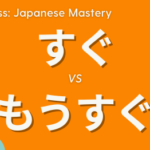The Difference Between “楽しみ” (tanoshimi) and “楽しさ” (tanoshisa)
“Which should I use, ‘楽しみ’ (tanoshimi) or ‘楽しさ’ (tanoshisa)?” “What’s the difference between ‘I’m looking forward to the weekend trip’ and ‘Traveling is fun’?” “When someone says, ‘This game is so much fun!’ can I reply with ‘I’m also looking forward to it!’?”
Did you know that “楽しみ” (tanoshimi) and “楽しさ” (tanoshisa) actually have different meanings? Understanding these nuances adds depth to your Japanese learning.
In this article, Eri-san from JPLT Online Japanese Language School explains the differences between these two terms with clear examples, making your Japanese studies even more enjoyable.
What’s the Difference Between “楽しみ” (tanoshimi) and “楽しさ” (tanoshisa)?
- 楽しみ (tanoshimi):
- Refers to the positive emotions or expectations one has about a future event.
- Mostly used as a noun and often involves a specific target or object.
- Example: 週末の旅行が楽しみだ (Shūmatsu no ryokō ga tanoshimi da – I’m looking forward to the weekend trip), プレゼントを開けるのが楽しみ (Purezento o akeru no ga tanoshimi – I’m looking forward to opening the gift).
- 楽しさ (tanoshisa):
- Refers to the state of actually enjoying something or the joy derived from that state.
- Mostly used as a noun to describe an abstract concept.
- Example: 友達と遊ぶのは楽しい (Tomodachi to asobu no wa tanoshii – Playing with friends is fun), 音楽を聴くのは楽しさを感じる (Ongaku o kiku no wa tanoshisa o kanjiru – Listening to music gives me joy).
Comparison with Examples
| Term | Example | Explanation |
|---|---|---|
| 楽しみ (tanoshimi) | 明日のパーティーが楽しみだ (Ashita no pātī ga tanoshimi da) | Expectation for a future event |
| 楽しさ (tanoshisa) | 海で泳ぐのは楽しさを感じる (Umi de oyogu no wa tanoshisa o kanjiru) | Joy experienced from a current activity |
| 楽しみ (tanoshimi) | プレゼントを開けるのが楽しみでしょう? (Purezento o akeru no ga tanoshimi deshō?) | Creating anticipation |
| 楽しさ (tanoshisa) | このゲームは本当に楽しいね (Kono gēmu wa hontō ni tanoshii ne) | Joy experienced through a specific activity |
Detailed Explanation
- 楽しみ (tanoshimi): Focuses on future events and the anticipation of something that has not yet happened.
- 楽しさ (tanoshisa): Focuses on the present experience and the joy or pleasure derived from it.
Summary
Although both “楽しみ” (tanoshimi) and “楽しさ” (tanoshisa) relate to the feeling of fun or enjoyment, they differ slightly:
- 楽しみ (tanoshimi): Anticipation of future events
- 楽しさ (tanoshisa): Joy from current experiences
Which One to Use?
- To talk about future events: 楽しみ (tanoshimi)
- To talk about current states or experiences: 楽しさ (tanoshisa)
Other Expressions
- 楽しみ (tanoshimi): 期待 (Kitai – Expectation), 喜び (Yorokobi – Joy)
- 楽しさ (tanoshisa): 喜び (Yorokobi – Joy), 快楽 (Kairaku – Pleasure)
Common Mistakes
- Confusing “楽しみ” (tanoshimi) and “楽しさ” (tanoshisa) as entirely interchangeable.
- Believing that either term can be used in all situations.
Final Thoughts
Do you now understand the difference between “楽しみ” (tanoshimi) and “楽しさ” (tanoshisa)? Using these terms correctly will make your Japanese sound more natural. Learning Japanese is like exploring a new world, so let’s proceed step by step with excitement.
If you need support in your studies, JPLT Online Japanese School is here to help. Our lessons offer an exploratory learning experience, much like a treasure hunt for the depths of Japanese language and culture.




